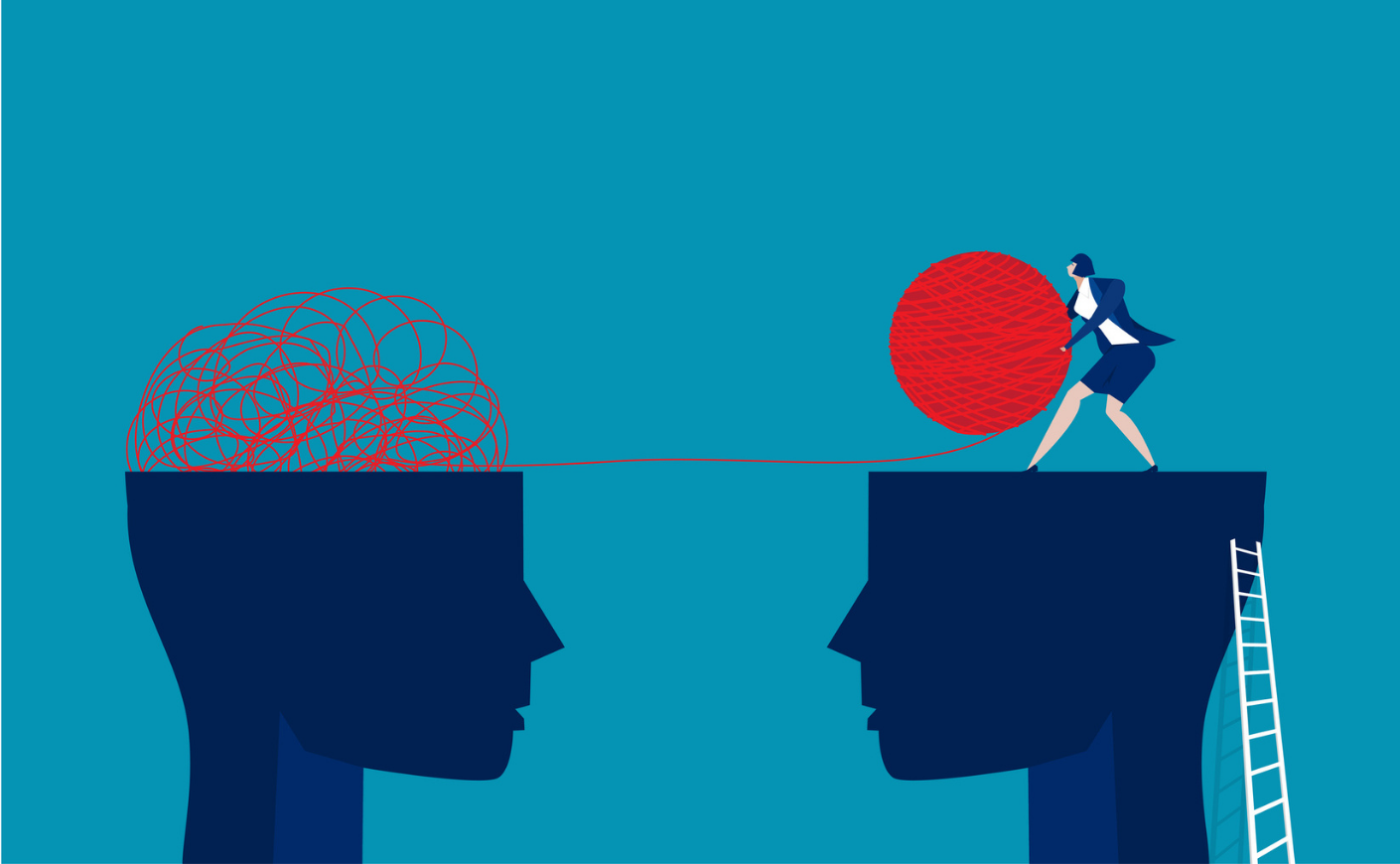Many assume that being a strong leader is all about forging ahead and pushing employees to their limits, in service of bigger and bigger profits. But for Donato Tramuto, the former CEO of Tivity Health and founder of the Tramuto Foundation and Health eVillages, compassion isn't just a "nice to have" in the workplace — it's vital to ensuring your team is thriving. That's the premise of his new book, The Double Bottom Line, which explores how powerful — and productive — empathy can be when it's deployed correctly.
For the book, Tramuto and his collaborator, Tami Corwin, a veteran publishing executive, spoke with dozens of strong leaders to ask them how they guide their businesses with compassion, and how that strategy can actually lead to greater success. They also drew insights from a survey of 1500 people which analyzed how, exactly, leaders can use empathy to deliver some seriously impressive results, including making leaders happier, too.
Katie checked in with Tramuto and Corwin to learn more about the approach, and how their hearts-and-minds strategy is one you can use at work, or pretty much anywhere else.
KATIE COURIC: Donato, first off, tell us why you wanted to write a book about compassionate leadership.
DONATO TRAMUTO: I think there's never been such widespread disruption to our daily lives and such major shifts in how people are working, connecting, and solving problems. I'd also done a survey within my own company and 20 percent of the workplace population felt like they had been bullied. And so the light bulb went off. I think that if we can show a little bit more understanding, then maybe we can solve some of society’s problems together.
KATIE: Tami, you've done so much research over the past year. Did you find a common denominator among compassionate leaders?
TAMI CORWIN: We asked every leader we interviewed for the book, ‘What does compassion mean to you?’ And they all said that compassion is empathy, plus action. Many of us think empathy and compassion are interchangeable, but they're really not. Empathy is more akin to a feeling or an emotion.
DONATO: A recent example of empathy plus action is the President of Ukraine: He could have accepted the opportunity to leave the country, to seek safety in another country, but he stayed with his people.
KATIE: Why do you think that humanity and soft power is such a focus for companies now?
DONATO: I started to see this in my own company, that people didn't want to just come to work and get a paycheck. I think as younger people begin to dominate the workforce, leadership is going to have to make changes to involve all people in the organization. The second point is that loneliness, this sense of loss of relevancy, was another notion that prompted me to write this book. When you ask employees, "What's the number one frustration that you have in your workforce?", they will come back and say, "No one's listening to what I need." This is an easy solution: taking the time to listen. To listen for understanding, as opposed to listening to respond. We don't listen to understand.
KATIE: Why do you think we’re seeing this reimagining of the relationship between employees and employers?
TAMI: Before we started the book, we had already seen in workplaces that engagement numbers were going down. And I think that the people in the workforce had different needs, yet the people in power and people in leadership positions were using an old, traditional model of leadership that doesn't work anymore. There are so many traditional leaders out there, who feel they need to have every answer. They don't involve everyone below them and around them.
In the next couple of years, if not already, half of the workforce will be non-white, but 85, 90% of CEOs are white. A huge percentage of the workforce will be under 40. But our leaders are generations older. So there's a generational gap in the workforce now, too.
Young people have certain unconscious biases towards older generations, and vice versa. So there's a great need for understanding and I believe that leaders need to come to the table with compassion because it allows everyone to listen to each other, and to understand.
KATIE: Can the pendulum swing too far though? I think employers are now expected to accommodate their employees in ways that are quite foreign to my generation, and those accommodations then aren’t met with loyalty to the company.
DONATO: I think we have to get rid of the word ‘loyalty’. I always say, if you want loyalty, get a bunch of golden retrievers. I think we have to move away from that word and get to trust.
We often hear people talk about ‘entitled young people’. I don't think that young people are universally entitled, of course. But you know, one of the things about very successful, compassionate CEOs, or leaders at any level, is that they are compassionate, but they don't indulge. So they are firm, they're honest.
One of the things that we saw was that great leaders make sure that their employees have crystal clear goals and communicate with them often. A lot of the leaders also found that younger people expect flexibility, not to do less work.
KATIE: So basically, the premise of the book is that compassion and results can work hand-in-hand. In fact, compassion can improve results.
DONATO: You got it. You will feel better. You'll go home at night fulfilled and you'll have a workforce that will generate the profits you need. Better people, better business. That's the double-bottom line.
KATIE: Maybe companies should have a Chief Tenderness Officer!
DONATO: Music to my hearing aids.









